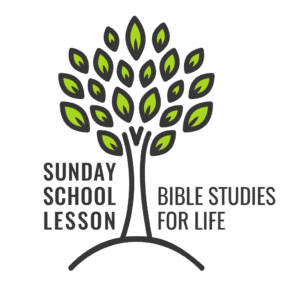By Mike Kemper
Interim Pastor, First Baptist Church, Dyer
 Focal Passage: Luke 12:13-21; 21:1-4
Focal Passage: Luke 12:13-21; 21:1-4
Luke tells us about Jesus’ confrontations with the Pharisees while pointing out to His disciples the problems of hypocrisy and greed, and by illustrating the value of good stewardship of possessions and sacrificial giving. By looking at these two contrasting stories — the rich fool who stores and the poor widow who gives — we discover that our attitude and practice of giving demonstrates our faith and trust in Christ.
As a large crowd was gathering around Jesus and His disciples, suddenly someone calls out, asking Jesus to instruct “my brother to divide the inheritance with me.” Jesus makes it clear that He is not there to “be a judge or arbitrator.” Jesus does not address the surface issue, but uses this question to teach and get to the root of the question, that of greed.
The story Jesus tells of the rich fool helps us know that our perspective on the future determines our present actions.
The rich man who has much wonders what he should do. Planning for the future is good, but this man’s failure is in not realizing where his wealth has come from. Jesus says, that the “rich man’s land was very productive.” God had provided those benefits, but the man was trying to “cash in” and store it up. This man is foolish because he considers that his possessions are his security for his future and he wants to keep it all for himself. Nothing wrong with wealth, but his mistake is in not realizing his many possessions were not eternal.
In later verses Jesus explains that “life is more than food, and the body more than clothing.” As those who trust in God, we should put God and His kingdom first, giving Him His due recognition and honor. Our possessions, are not our security for the future, but they can become a stumbling block hindrance in becoming “rich toward God.”
The contrasting story of the poor widow who gives is Jesus’ example of a person’s willingness to trust God’s provisions, rather than trusting in their wealth for the future. The rich fool and the Pharisees loved riches and wealth, believing that such things were evidence of their dedication to God, and believing that their large contributions would impress God.
The widow’s offering of two small coins seemed like a pathetically trivial offering. Yet Jesus is pleased with the offering because she was obviously trusting God for her future needs. The wealthy were giving “out of their abundance, but she gave out of her poverty” even to the point of giving all she had to live on.
Several lessons are revealed in these two stories. Our provisions are from God. Everyone, whether blessed with much or little, should realize where those blessings come from and demonstrate thankfulness to God, trusting God for the future. This may be more difficult for those with much wealth and possessions as those things “piled up” may form a kind of mountain to climb over.
It can also be difficult for those with little, thinking “I only have a little and I can’t afford to give anything at all!” Years ago, I remember the testimony of a deacon who said: “We are too often like a bunch of hogs under the acorn tree, always eating the acorns, but never looking up to see where the acorns come from.”
We should always show gratitude for what we have resulting in cheerful, and even sacrificial giving. Our motives in giving demonstrates our trust in God.
